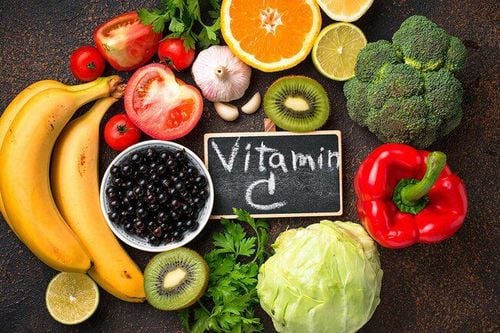You have heard about collagen and its importance to health, especially for your skin. Many studies have shown that oral collagen supplementation can deliver promising results. So how many times should you take collagen in a year? This is a common question, especially among women.
1. The importance of Collagen in Structural Integrity
Collagen is the vital protein that function as strong and flexible fibers, holding together tissues, muscles, and bones in the body.
Especially, for the skin, collagen helps build structure and maintain elasticity, often referred to as “bounce.”
Therefore, increasing levels of collagen in the skin or preventing its loss helps maintain a youthful appearance and delays the visible signs of aging.
2. Collagen: The Fountain of Youth
Collagen contains a unique amino acid called hydroxyproline, which is key to maintaining the youth of the skin. Specifically, Prolyl Hydroxyproline, a collagen fragment made up of only two amino acids, has been shown in vitro (in cell studies) to activate skin cells. It also supports the production of hyaluronic acid, a crucial component for increasing skin hydration.
However, our bodies are unable to directly absorb collagen in its whole form when ingested. Upon reaching the stomach and intestines, collagen is broken down into amino acids or smaller amino acid fragments. These amino acids can then be synthesized into any protein the body needs, but not necessarily collagen.To address this, most oral collagen supplements are provided in the form of collagen peptides (hydrolyzed collagen).These are pre-digested into small collagen peptides and amino acids. It can then be efficiently and directly absorbed by the body, supporting its collagen production.

3. Why do we need Collagen supplements?
In today’s world, the onset of aging is occurring earlier, with signs often appearing between the ages of 25 and 30. Because during this time, collagen levels in the body start to decline steadily, averaging about 1.5% per year.
As collagen decreases, aging signs become more viable both inside and outside such as wrinkles, sagging skin, dryness, and a loss of facial firmness.
Therefore,supplementing collagen can provide significant benefits for long-term health and beauty, especially for maintaining youthful skin. Oral collagen supplements are especially effective, as they are easily absorbed by the body for optimal results.
4. How long should you take collagen?
Depending on individual goals, the duration and dosage of collagen supplementation vary. Most people can safely absorb 1-1.5g of collagen daily. Many studies show that even with high daily doses (up to 1.2g of protein/kg of body weight), do not negatively impact kidney function in healthy individuals.
When collagen is consumed in excess, the body either stores it in tissues and organs or gets rid of the excess if it cannot be absorbed.
Experts recommend following a collagen supplementation regimen for optimal results. A typical cycle lasts 2-3 months, with 3-4 cycles per year, and a rest of 1-2 months between each cycle. This allows the body to maximize the benefits of collagen across all organs.
For hydrolyzed collagen (collagen peptides), consistent daily intake at the recommended dosage is crucial. Advanced production technologies ensure the right amount of peptides, with 2.5g of hydrolyzed collagen (usually in oral form) per day has been shown to deliver optimal results without affecting kidney function in healthy individuals.
Most collagen types are best taken in 3-4 cycles per year. However, hydrolyzed collagen can be used continuously for years, maintaining long-term benefits when taken at the recommended dosage.

5. When will collagen show results?
The time it takes to see collagen's effects depends on your age, as the body’s regeneration process varies. For those aged 20-25, visible improvements can be observed in as little as three weeks, while individuals aged 30-35 may start noticing results after approximately four weeks.Therefore, the time to achieve noticeable results from collagen supplementation varies by age.
When you experience the benefits, it's important to continue taking collagen regularly to maintain its long-term benefits for your beauty and health.
6. How can you increase levels of collagen in your body?
Supplementing collagen, especially after the age of 30, is essential for women to preserve youthful skin. In addition to collagen supplements, several proven methods can help increase collagen production in your body.
6.1. Retinoids
According to experts, retinoids are necessary for skincare and health. They are considered the gold standard in skincare due to their ability to accelerate cellular turnover at an exceptionally fast rate.
Dr. Mahto explains that retinoids are compounds derived from vitamin A, which have been scientifically proven to have anti-aging effects when applied topically. Dr. Mahto further adds that retinoids can help reduce the appearance of wrinkles by slowing down collagen breakdown and fading age spots. They work by improving skin cell renewal and stimulating collagen production.
6.2 Vitamin C
Vitamin C is necessary to synthesize hyaluronic acid, which helps improve skin hydration and accelerate tissue repair. If you don't have enough vitamin C, your body won't fully benefit from foods containing hyaluronic acid. Research has shown that hyaluronic acid helps to enhance collagen production in the body. As we age, the natural levels of hyaluronic acid in the body decrease. Consuming more vitamin C and amino acids can enhance hyaluronic acid and collagen levels, boosting skin health.
In addition to being essential for collagen production and supporting skin health, vitamin C is also a powerful antioxidant, brightening the skin and providing anti-inflammatory benefits.

6.3 Aloe Vera
Aloe vera, known for its healing properties, promotes collagen production, making it effective for treating wounds and burns.Its ability to stimulate cell growth enhances collagen synthesis, particularly in the skin when applied topically or even consumed.It can be applied directly or found in many products on the market.
6.4 Ginseng
Ginseng is known for its anti-aging effects, promoting collagen production and helping maintain the structure of skin and body tissues. It has been shown that Ginseng can protect the skin from UVB damage caused by sunlight. When you consume ginseng or ginseng tea, the antioxidants are released into the bloodstream, which help protect healthy cells and contribute to brighter skin.
6.5 Coriander
Coriander is not only a flavorful herb used in cooking but also a source of Vitamin C, which helps stimulate collagen production. Additionally, linolenic acid in coriander, a powerful antioxidant that protects the skin from free radical damage, is a major factor in skin aging and the breakdown of skin structure.
6.6 Algae
Marine plant ingredients, especially algae, are becoming increasingly popular in beauty routines. Almost all skin damage is caused by oxidative processes, such as exposure to pollutants, which can harm cell development. Algae may prevent loss of elasticity and skin aging by protecting the collagen in the skin.
6.7 Diet
A well-balanced diet ensures maintaining optimal collagen levels in the body. Consuming a variety of proteins from both plant and animal sources increases collagen production. Additionally, vitamins A and C, commonly found in fruits and vegetables. Experts also suggest adding bone broth, beef or chicken stock, and fish cartilage into your diet, as these are rich in collagen, gelatin, and amino acids.

Collagen is an abundant protein and a key component of many connective tissues in the body. It is derived from various animal sources and processed into supplements to replenish the collagen lost as we age. While most adults consuming a balanced diet rich in animal protein can produce enough collagen, some choose to supplement collagen to support muscle growth, joint health, and the condition of skin and hair.
There are various types of collagen supplements available, and the type you choose will determine the appropriate dosage. As with any supplement, it's important to consult a healthcare provider before adding collagen to your routine.
To arrange an appointment, please call HOTLINE or make your reservation directly HERE. You may also download the MyVinmec app to schedule appointments faster and manage your reservations more conveniently.













